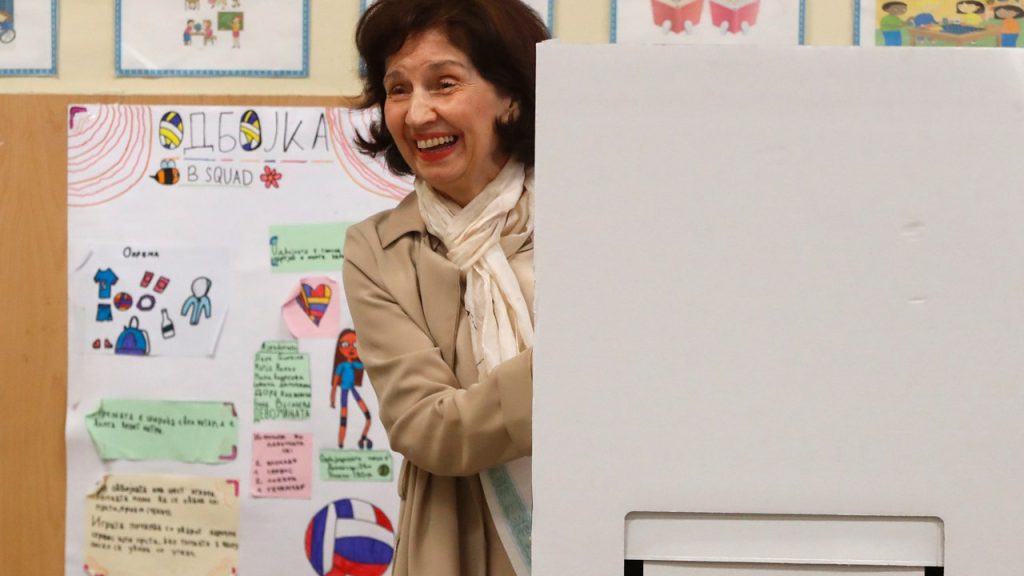North Macedonia is heading to a presidential runoff after no candidate secured enough votes to win outright in the first round of balloting. The second round of voting on May 8 will coincide with parliamentary elections, with near-full results from the first round showing a shift in favor of the candidate backed by the center-right main opposition coalition, VMRO-DPMNE. Gordana Siljanovska Davkova was leading with just under 40%, followed by incumbent President Stevo Pendarovski with nearly 20% and government-allied candidate Bujar Osmani with 13.6%. Turnout was 49.75%, and to win outright, a candidate needed support from more than 50% of registered voters. Siljanovska Davkova and Pendarovski will now meet in the runoff.
Hopes are high in North Macedonia that the president will oversee the country’s entry into the European Union, after orbiting the 27-nation bloc for nearly two decades. Siljanovska Davkova emphasized her pro-EU credentials, calling for a new European course for the country. Pendarovski voiced disappointment with the first-round results but hoped to do better in the second round, potentially with the support of the ethnic Albanian minority that represents about a quarter of the population. The campaign period focused on EU accession, the rule of law, fighting corruption, and reducing poverty.
Seven candidates were running for the largely ceremonial position of president, with the electoral commission reporting that voting went smoothly, despite a minor technical issue with biometric devices at some polling centers. Both Siljanovska Davkova and Pendarovski agree that North Macedonia belongs in the EU but have differed on how to address neighboring Bulgaria’s insistence on constitutional recognition of a Bulgarian ethnic minority. EU member Bulgaria has threatened to block North Macedonia’s bloc membership bid without this recognition, complicating the country’s path to EU entry.
North Macedonia has been a candidate to join the EU since 2005, with membership talks beginning in 2022. The process is expected to take years, but voter Stavre Temelkovski expressed optimism that the country would soon become a full-fledged EU member. He hoped for a civic movement to prevail, allowing North Macedonia to be a part of pro-Western systems and begin a healing process for the state, which has waited for almost three decades. Many generations in the country are exhausted from the prolonged waiting period for EU accession, and the upcoming presidential runoff and parliamentary elections will be crucial in determining the country’s future path towards the European Union.


